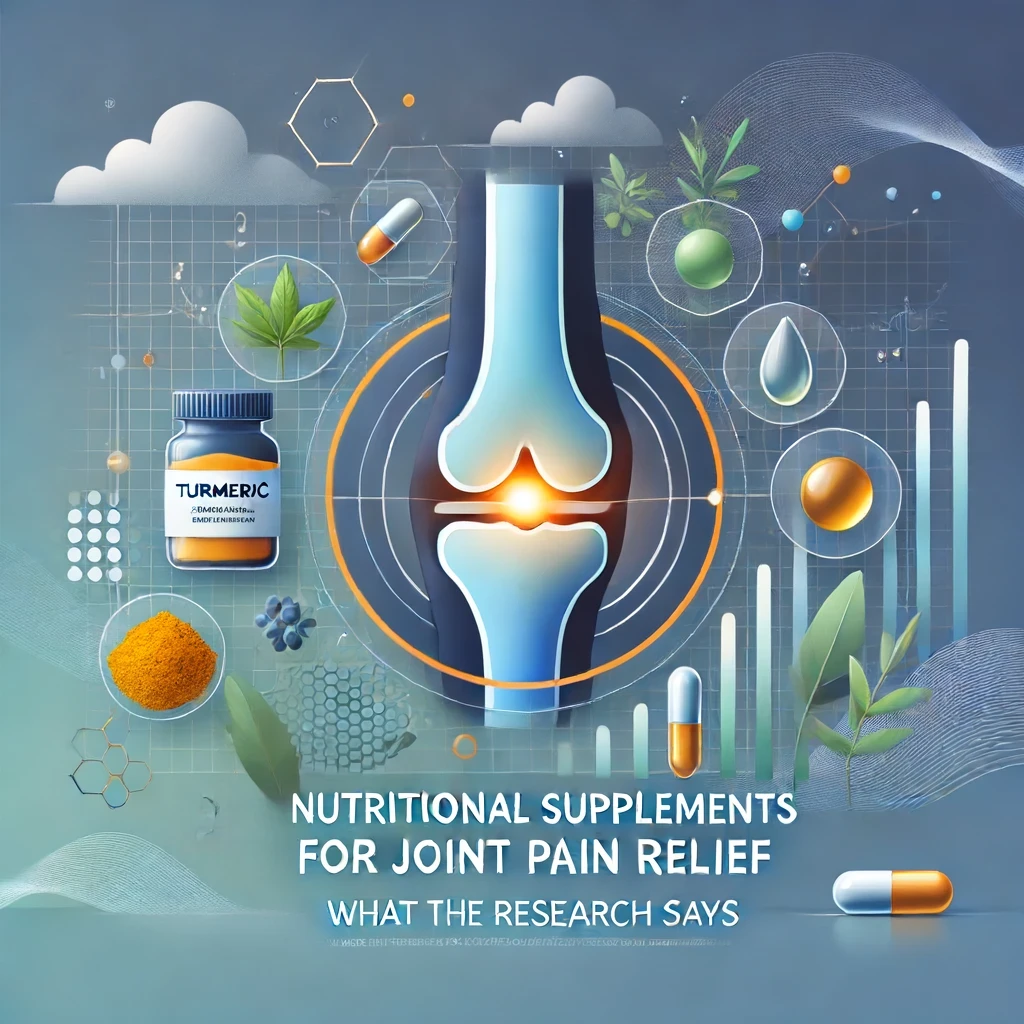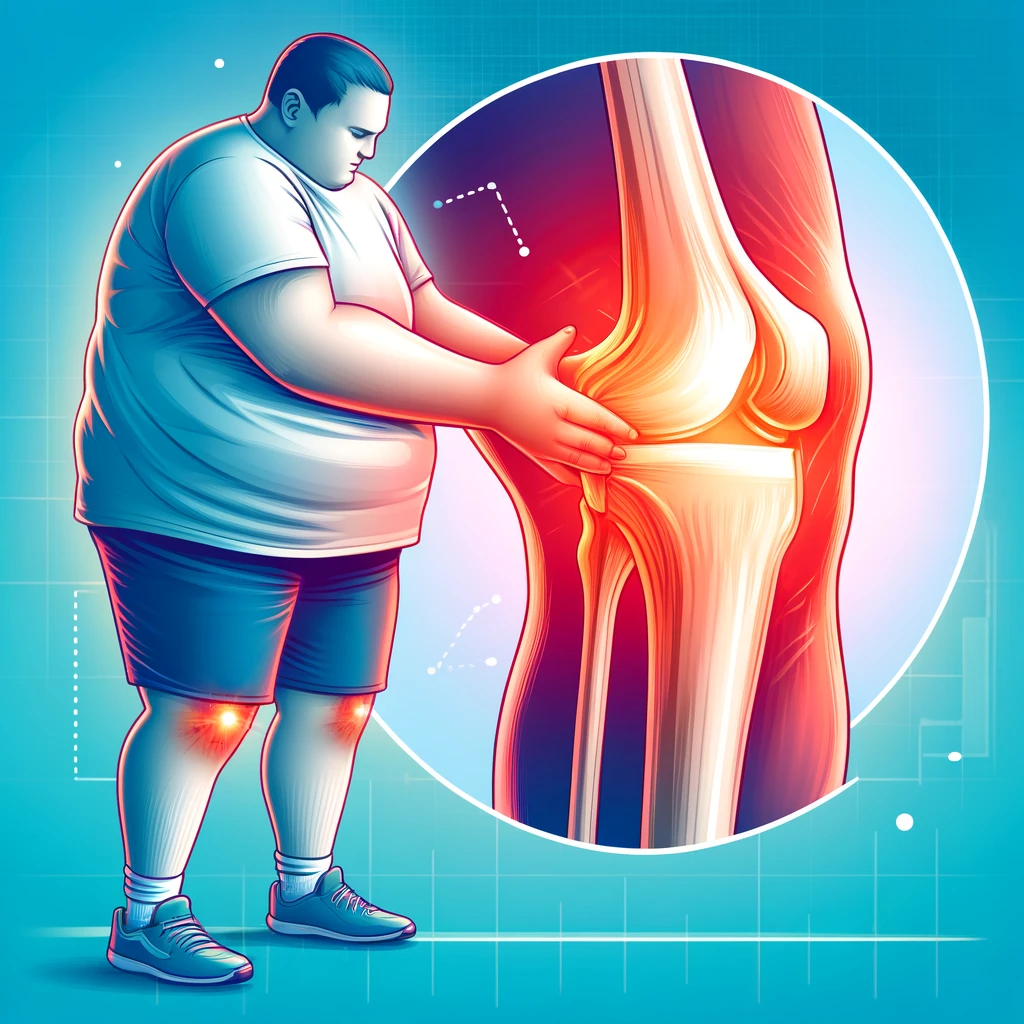
Maintaining joint health and managing joint pain is crucial for leading an active, pain-free life. Joint pain, which can arise from a variety of causes such as injuries, aging or chronic conditions like arthritis, significantly impacts daily activities and quality of life. Among the many factors influencing joint health, diet plays a pivotal role. By making informed dietary choices, individuals can manage joint pain more effectively, reduce inflammation and enhance their overall well-being. This article delves into how certain foods and nutrients can support joint health, alleviate pain and promote a lifestyle that’s both active and enjoyable.
Understanding Joint Pain
Common Causes of Joint Pain
Joint pain can result from numerous factors such as injuries, overuse, autoimmune diseases and degenerative conditions like osteoarthritis. Inflammation is often a common denominator, causing swelling, stiffness and discomfort.
Types of Joint Pain
The types of joint pain vary from acute, short-term pain due to injury, to chronic pain resulting from conditions like rheumatoid arthritis and gout. Each type requires different management strategies.
Impact on Daily Life
Joint pain can significantly impact daily activities, limiting mobility and reducing quality of life. Managing this pain is essential to maintaining independence and functionality.
How Diet Affects Joint Health
Role of Nutrition in Joint Health
Nutrition is fundamental to joint health. Essential nutrients support cartilage repair, reduce inflammation and strengthen the tissues surrounding the joints.
Inflammation and Diet
Certain foods can either promote or reduce inflammation. Diets high in processed foods and sugars tend to increase inflammation, whereas diets rich in whole foods can have anti-inflammatory effects.
Nutrients Essential for Joint Health
Key nutrients for joint health include omega-3 fatty acids, antioxidants, vitamins C and D, calcium and glucosamine. These nutrients support cartilage health, reduce inflammation and improve joint function.
Anti-inflammatory Foods
Fatty Fish
Fish like salmon, mackerel, and sardines are rich in omega-3 fatty acids, which are known for their anti-inflammatory properties. Regular consumption can help reduce joint pain and stiffness.
Leafy Greens
Leafy greens such as spinach, kale, and Swiss chard are packed with antioxidants and vitamins that combat inflammation and support overall joint health.
Berries
Berries like blueberries, strawberries, and raspberries are high in antioxidants, which can help reduce inflammation and provide essential nutrients for joint repair.
Nuts and Seeds
Nuts and seeds, especially walnuts, chia seeds, and flaxseeds, are excellent sources of omega-3 fatty acids and other anti-inflammatory compounds.
Olive Oil
Olive oil contains oleocanthal, a compound with anti-inflammatory properties similar to those of non-steroidal anti-inflammatory drugs (NSAIDs). It’s a healthier fat option that supports joint health.
Foods to Avoid
Processed Foods
Processed foods are often high in trans fats, sugars and refined carbohydrates, which can increase inflammation and exacerbate joint pain.
Sugary Drinks
Sugary drinks, including sodas and sweetened beverages, can lead to increased inflammation and contribute to weight gain, further straining the joints.
Red Meat
Red meat, particularly processed varieties, can trigger inflammation and should be consumed in moderation.
Trans Fats
Trans fats, commonly found in baked goods and fast foods, can promote inflammation and negatively impact joint health.
Supplements for Joint Health
Glucosamine and Chondroitin
These supplements are known for their role in maintaining cartilage health and reducing the symptoms of osteoarthritis.
Omega-3 Fatty Acids
Omega-3 supplements can help reduce inflammation and improve joint mobility, especially in individuals with rheumatoid arthritis.
Turmeric
Turmeric contains curcumin, a powerful anti-inflammatory compound that can help manage joint pain and stiffness.
Vitamin D and Calcium
Vitamin D and calcium are crucial for bone health and can help prevent conditions like osteoporosis, which can affect joint health.
Diet Plans for Joint Health
Mediterranean Diet
The Mediterranean diet is rich in anti-inflammatory foods like fruits, vegetables, whole grains, and healthy fats, making it beneficial for joint health.
**
DASH Diet
The Dietary Approaches to Stop Hypertension (DASH) diet focuses on fruits, vegetables, lean proteins and whole grains. It helps reduce inflammation and supports overall health, including joint health.
Plant-Based Diet
A plant-based diet, emphasizing vegetables, fruits, legumes, and whole grains, can reduce inflammation and provide essential nutrients for joint health.
Role of Hydration
Importance of Water for Joint Health
Hydration is crucial for maintaining the lubrication in joints. Synovial fluid, which cushions the joints, relies heavily on proper hydration.
How Dehydration Affects Joints
Dehydration can lead to decreased synovial fluid production, increasing friction between joints and causing pain and stiffness.
Tips for Staying Hydrated
Drinking water regularly, eating hydrating foods like cucumbers and watermelons, and reducing diuretic beverages like coffee can help maintain hydration levels.
Personalizing Your Diet
Assessing Your Dietary Needs
Each individual’s dietary needs can vary based on age, activity level and health conditions. Understanding these needs can help tailor a diet plan for optimal joint health.
Consulting with a Nutritionist
A nutritionist can provide personalized dietary advice and help design a meal plan that supports joint health and meets individual nutritional requirements.
Keeping a Food Diary
Tracking food intake and noting any changes in joint pain can help identify triggers and beneficial foods, making it easier to adjust the diet accordingly.
Integrating Diet with Other Treatments
Combining Diet with Exercise
A balanced diet and regular exercise work synergistically to support joint health. Exercise strengthens muscles around the joints, while a proper diet provides the necessary nutrients for repair and maintenance.
Role of Physical Therapy
Physical therapy can help improve joint function and reduce pain. A diet rich in anti-inflammatory foods can enhance the benefits of physical therapy.
Medications and Diet
Certain medications for joint pain can interact with dietary choices. Consulting with a healthcare provider can ensure that diet and medication work effectively together.
Lifestyle Changes for Better Joint Health
Maintaining a Healthy Weight
A healthy weight reduces the strain on joints, particularly weight-bearing ones like the knees and hips. Diet plays a crucial role in weight management.
Regular Physical Activity
Engaging in regular physical activity helps maintain joint flexibility, strengthen muscles, and reduce the risk of joint pain.
Stress Management
Chronic stress can increase inflammation in the body. Techniques like meditation, yoga and deep breathing can help manage stress and improve joint health.
Success Stories
Real-life Examples
Many individuals have successfully managed joint pain through dietary changes. Hearing their stories can provide motivation and practical tips for others.
Tips from Individuals Who Managed Joint Pain with Diet
Personal experiences often reveal effective strategies and inspire others to make similar changes. Tips can include specific foods to incorporate, meal planning ideas and lifestyle adjustments.
Common Myths About Diet and Joint Pain
Debunking Popular Myths
Myths like “all fats are bad” or “only medications can help joint pain” can be misleading. Clarifying these myths with evidence-based facts can guide better dietary choices.
Evidence-Based Facts
Scientific research supports the role of diet in managing joint pain. Highlighting these facts can help individuals make informed decisions about their diet.
Conclusion
Diet plays a pivotal role in managing joint pain and improving overall joint health. By understanding the connection between what we eat and how our joints feel, we can make informed choices that lead to better mobility and a higher quality of life. Integrating a balanced diet with regular exercise, hydration and stress management can provide a holistic approach to maintaining healthy joints.
FAQs
Can diet alone manage joint pain?
Diet can significantly impact joint health, but it is often most effective when combined with other treatments like exercise and medication.
How long does it take to see results from dietary changes?
Improvements can vary, but many individuals report noticing changes within a few weeks to months of consistent dietary adjustments.
Are there specific foods that can trigger joint pain?
Yes, foods high in sugars, trans fats, and processed ingredients can increase inflammation and worsen joint pain.
What are the best supplements for joint health?
Supplements like glucosamine, chondroitin, omega-3 fatty acids and turmeric can support joint health and reduce pain.
How can I make sustainable dietary changes?
Start by incorporating small changes, such as adding more fruits and vegetables to meals, reducing processed foods, and staying hydrated. Consulting with a nutritionist can also help create a sustainable plan.



